Nội Dung Chính
Grammar
Passive voice: review
REMEMBER!
We form the passive voice with the verb to be in the appropriate tense and form, and the past participle of the main verb. Only verbs which can take an object can be used in the passive.
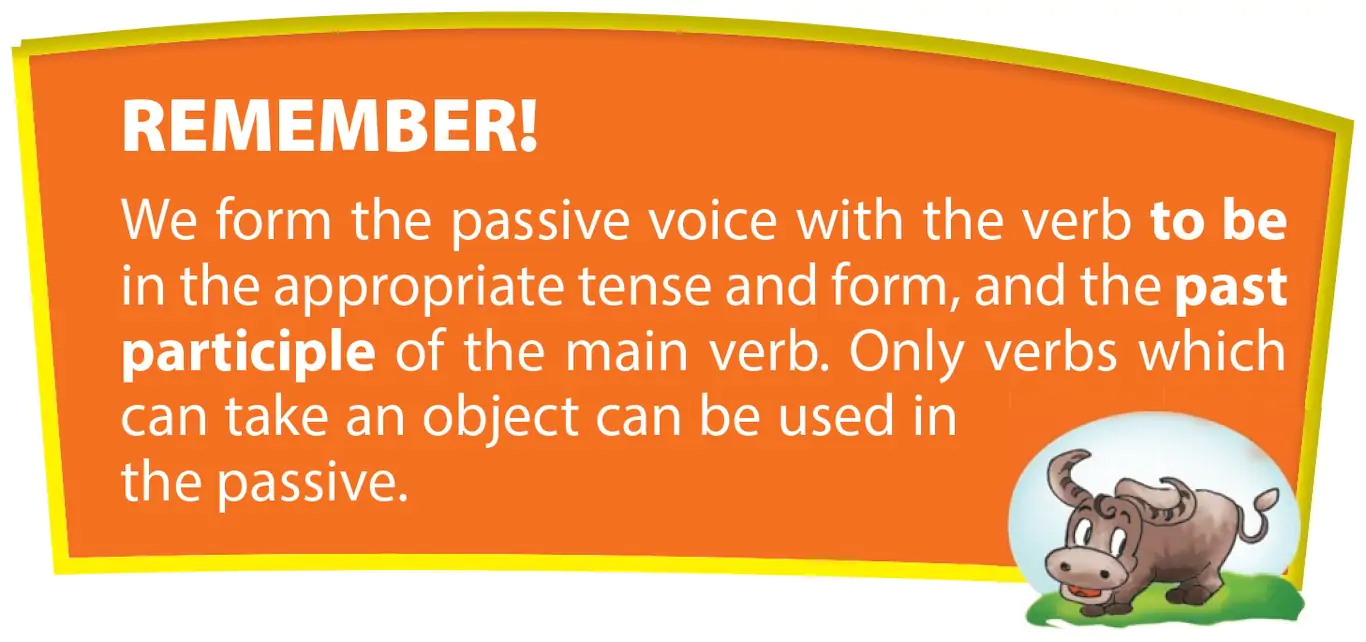
1. Read the conversation in GETTING STARTED and underline any sentences in the passive voice that you can find. Check your findings with a partner.
2. Complete the sentences using the correct passive form of the verbs in brackets.
1. Debris (scatter) __________ across the countryside by the strong winds last night.
2. Ten new houses (build) __________ in the town every year.
3. Residents of flooded villages (take) __________ to a safe place last night.
4. In the future, natural disasters (predict) __________ accurately with the help of technology.
5. Food and medical supplies (deliver) __________ later this afternoon.
3. Rewrite the following sentences using the correct passive voice.
1. Volunteers have given out food and blankets to homeless people.
_______________________________________________________________
2. So far, rescue workers have freed ten people trapped in collapsed buildings.
_______________________________________________________________
3. Did the storm destroy the whole village?
_______________________________________________________________
4. If the storm hits the area, it will cause a lot of damage.
_______________________________________________________________
5. They are going to organise a garden party to raise money for the victims of the flood.
_______________________________________________________________
Past perfect
4a. Read part of the conversation from GETTING STARTED. Pay attention to the underlined part.
Nick: Was anyone injured?
Duong: Only a few minor injuries were reported. Most people had moved to safe areas when the storm broke.
(+) Positive
Subject + had + past participle
Example: I had left when they came.
(-) Negative
Subject + had not/ hadn’t + past participle
Example: I hadn’t left when they came.
(?) Questions
Had + subject + past participle
Had + subject + not + past participle
Hadn’t + subject + past participle
Example: Had you left when they came?
Had you not left when they came?
Hadn’t you left when they came?
* Short answers to Yes/No questions:
(+) Yes, subject + had.
(-) No, subject + hadn’t.
Example: Had you left when they came?
Yes, I had./ No, I hadn’t.
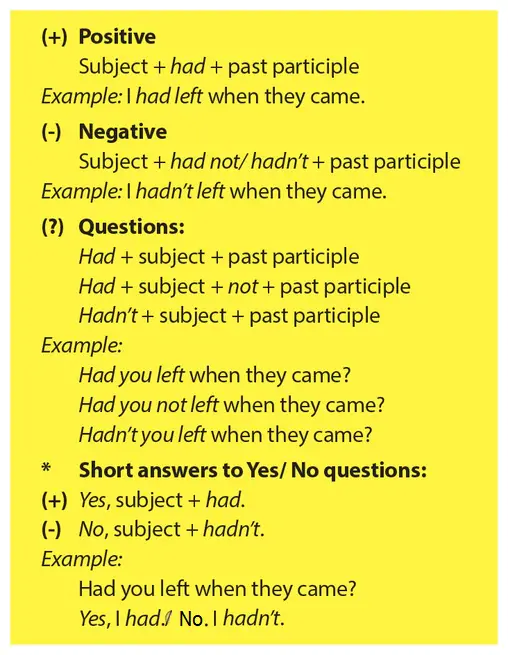
b. When do we use the past perfect? Can you think of any rules?

We use the past perfect to describe an action before a stated time in the past.
Example:
People had managed to leave the flooded villages by 11 o'clock last night.

We use the past perfect to describe an action that happened before another action in the past.
Example:
People had already left the flooded villages when rescue workers arrived.
5. Complete the sentences by putting the verbs in brackets into the simple past or past perfect.
1. Most people (leave) __________ before the volcano (erupt) __________.
2. By the time we (arrive) __________ at the canyon, it (stop) __________ snowing.
3. They (spend) __________ the night in the flooded area before help (arrive) __________.
4. Simon (get) __________ lost because he (not take) __________ a map with him.
5. I (find) __________ my pen after I (buy) __________ a new one.

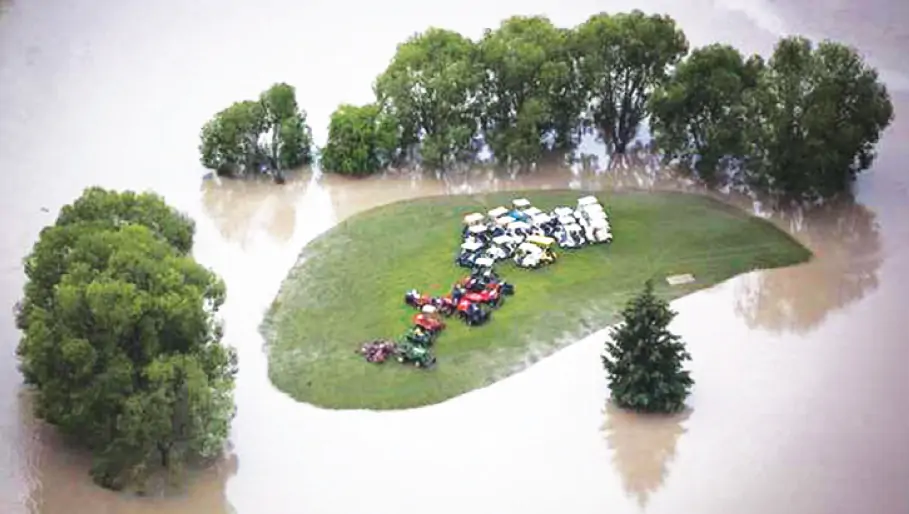
6. Work in pairs. Ask and answer the following questions about you.
Example:
A: What had you learned to do by the time you started primary school?
B: By the time I started primary school, I had learned how to ride a bike.
1. What had your mother done when you got up last Sunday?
_______________________________________________________________
2. What had you done before you went to bed last night?
_______________________________________________________________
3. What had already happened when you arrived at school today?
_______________________________________________________________
4. What had you done before you left school yesterday?
_______________________________________________________________
5. What had happened by the time you finished your home work yesterday?
_______________________________________________________________
7. GAME
Work in two teams. Take turns to give reasons why you were pleased/ upset/ happy/ angry, etc. Use the past perfect for the event that had happened. Each correct sentence gets one point. The team with the most points wins.
Example:
Oh my birthday party, I was very pleased because I had received a nice present.
Last Tuesday, I was annoyed because I had missed my school bus.
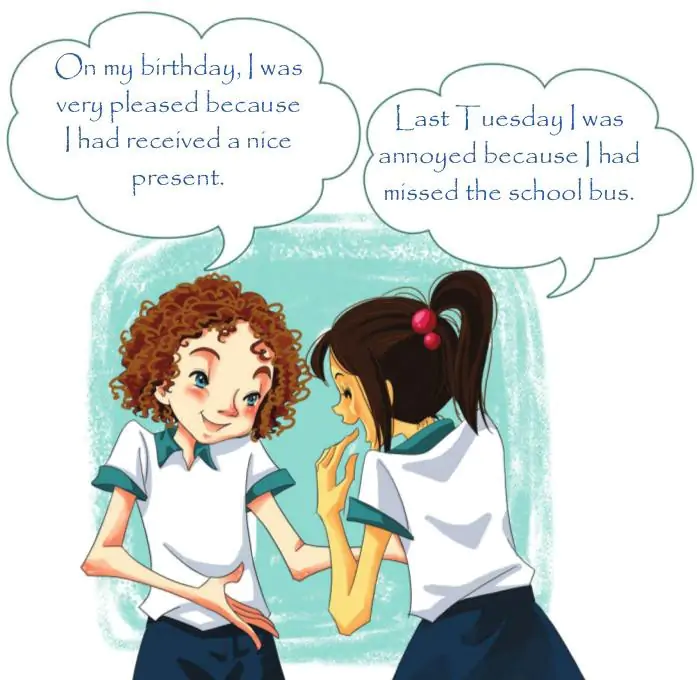


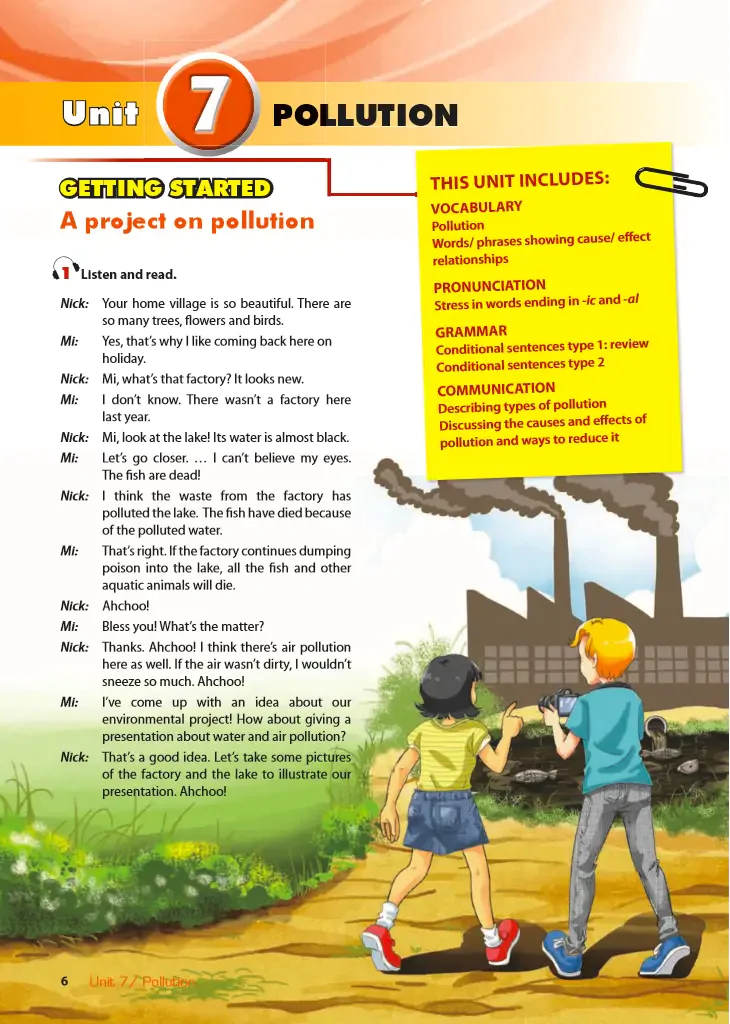
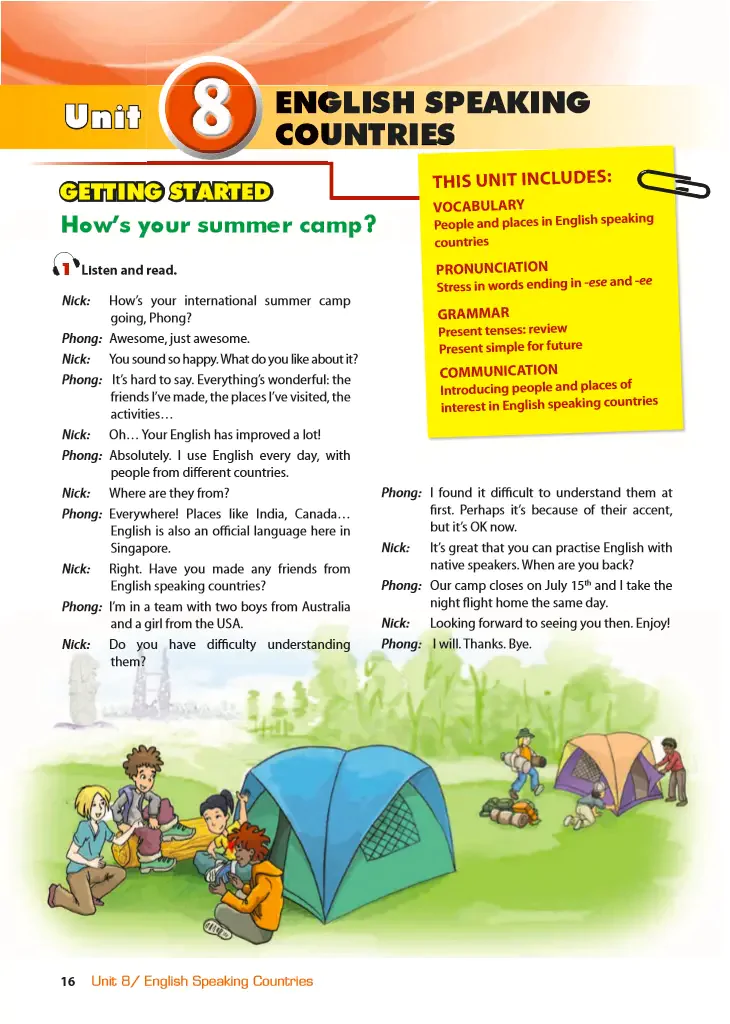
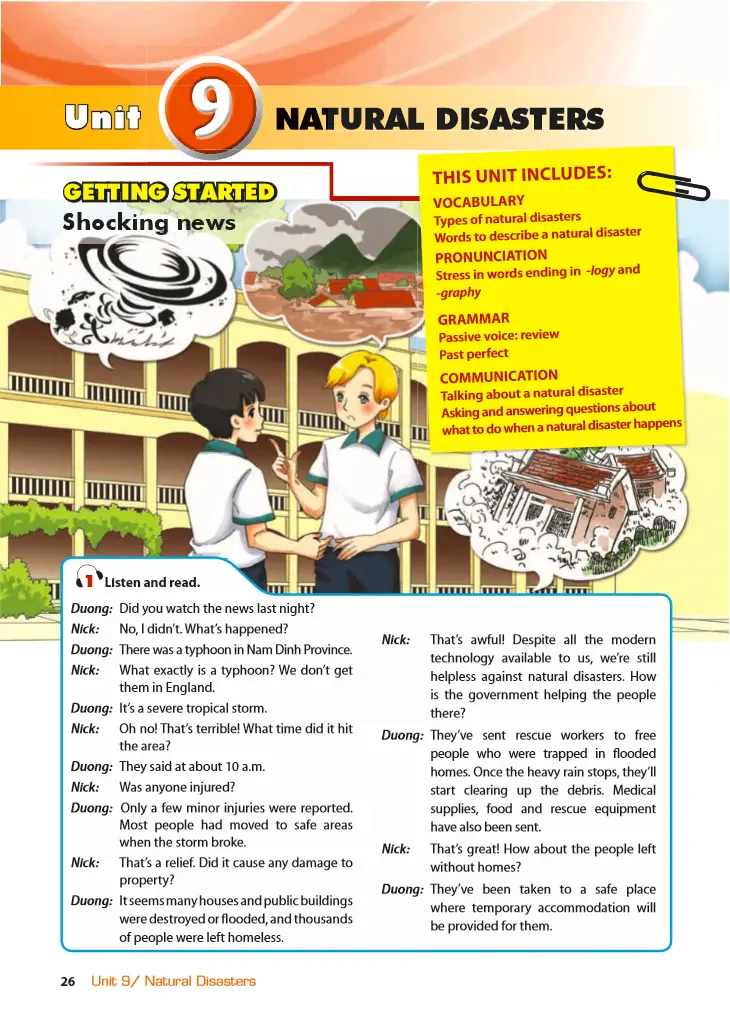
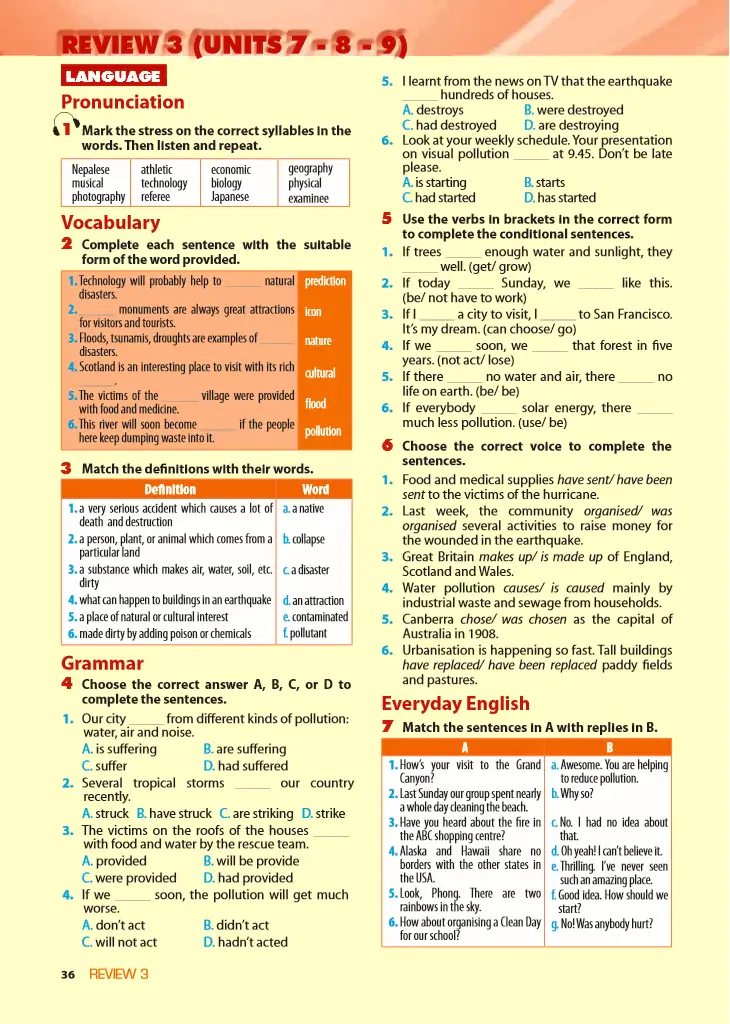
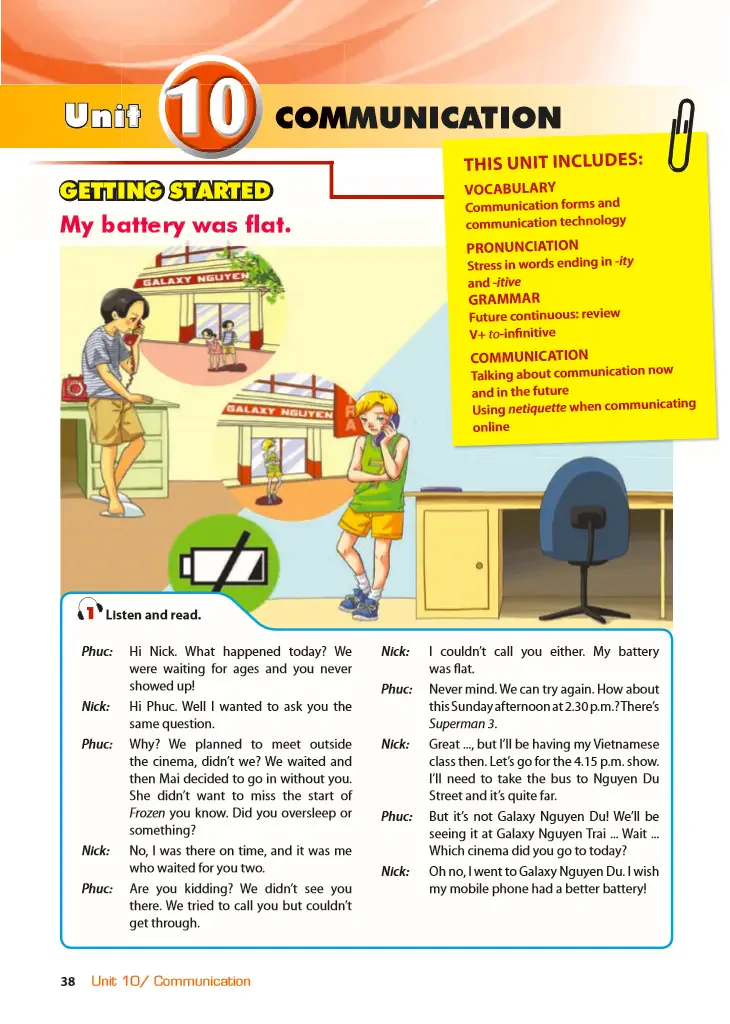
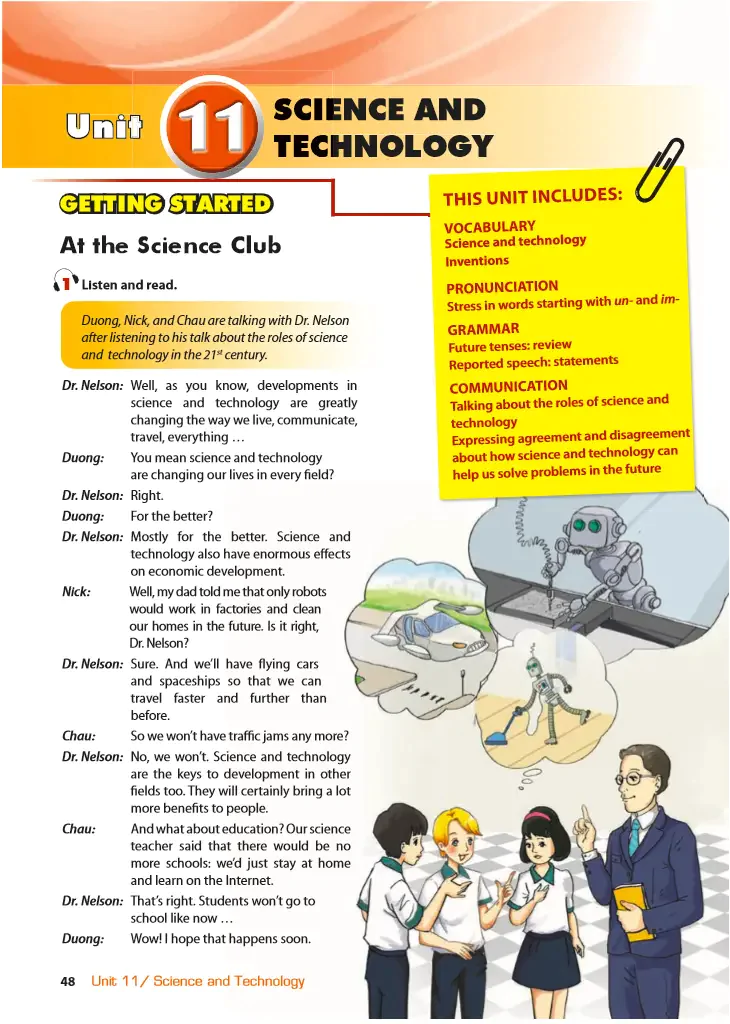
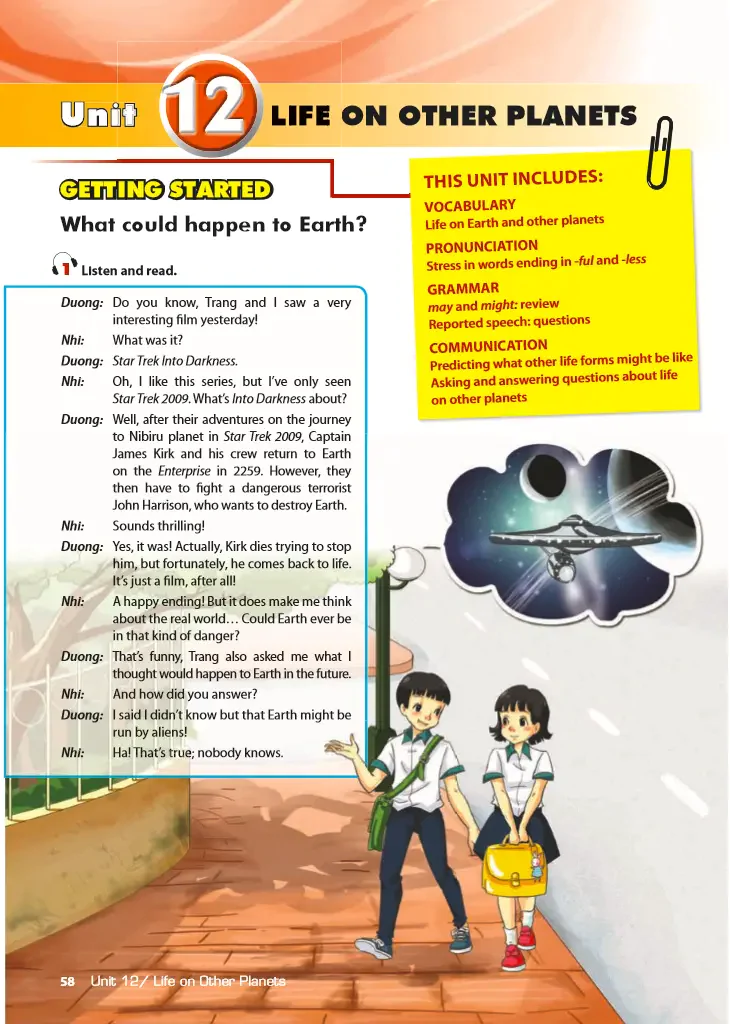
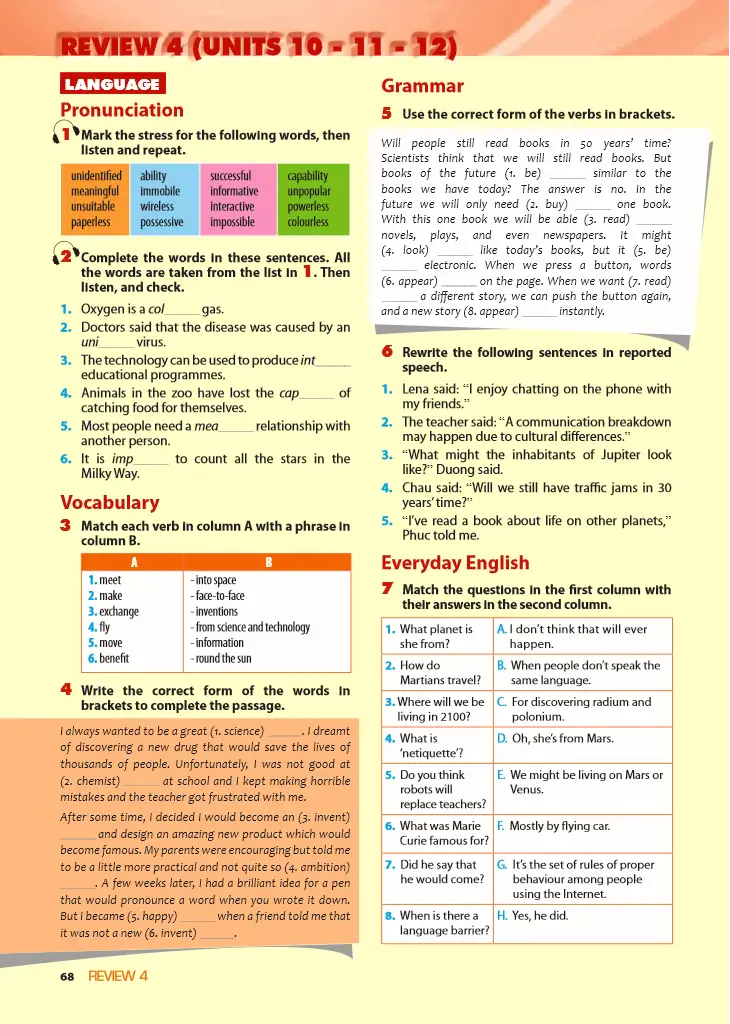





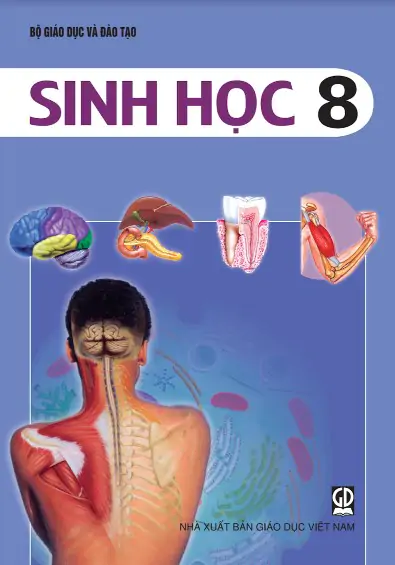





















Bình Luận
Để Lại Bình Luận Của Bạn